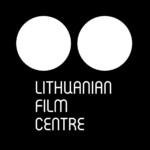Three screenings from Lithuania will showcase the country’s film production. The first screening is dedicated to the outstanding short films shot on 16mm film by Arturas Barysas (1955–2004). The second screening will feature short films by Vytautas Katkus and Laurynas Bareiš. The third screening features films by Lithuanian women filmmakers – documentaries, fiction and animation.
Read the full introduction below.
The Lithuanian film focus at the Tampere Film Festival is organised in collaboration with Lithuanian Shorts and the Lithuanian Film Centre.
It is also a part of the Lithuanian Culture Institute’s cultural programme “Lithuanian Culture in Tampere 2025”, which aims to showcase Lithuania’s contemporary artistic achievements.


Lithuania is a small country in Europe that is quite unknown in the world. In the world of cinema, Lithuania is also rather small in terms of its successes on the big screens. Jonas Mekas, known for his short films and specifically avant garde works, is a household name, and although he lived most of his life in the US, his Lithuanian roots are acknowledged.
A few years ago, two Lithuanian directors emerged to the arenas of short film and had great success at film festivals. Their films have something peculiar and original that us outsiders can call, in want for a better term, the Lithuanian new wave.
At Tampere Film Festival, we wanted to look into Lithuanian film a bit closer and perhaps also penetrate the mentality of Lithuanians – as the country is the most unfamiliar Baltic country, at least for us in Finland. In our Katkus-Bareisa programme we present some successful films by these renowned directors. On the surface these films might seem everyday and uneventful, but with a closer look they have nuances and an odd appeal.
Up until the 90’s, Lithuania was a part of the Soviet Union. We delve into that era through the films of the avant garde director Artūras Barysas. Artūras Barysas documented and commented on the often absurd world with sharp humor in circumstances that were, to put it mildly were not always optimal. With his films, we can visit the time and place where film was a tool for resistance and avant garde films were shown in cellars rather than galleries. The curators of this screening, David Ellis and Lijana Jakovlevna Siuchina, present the screening with Artūras Barysas’ son, Vytis Barysas.
As two of the Lithuanian screenings are rather male-centered, there is a need to balance our view of Lithuania and thus the third screening is dedicated to female directors. Through films representing different genres we supplement our small presentation of the film scene in Lithuania.
Jukka-Pekka Laakso
Tampere Film Festival
